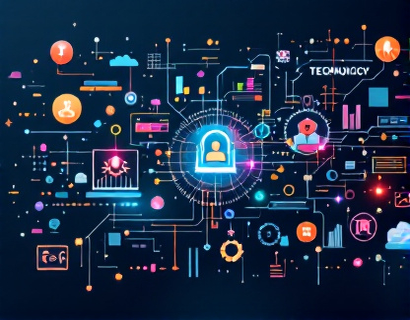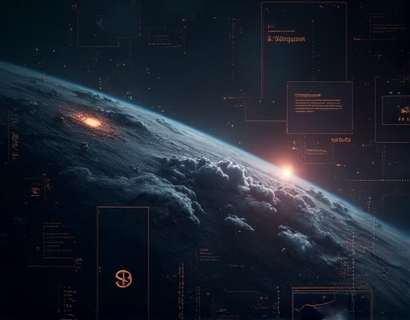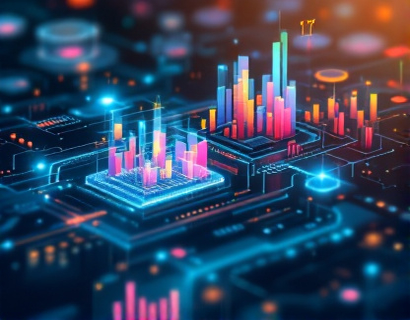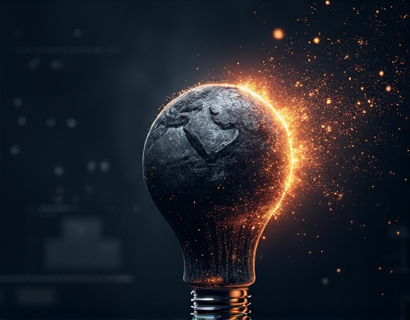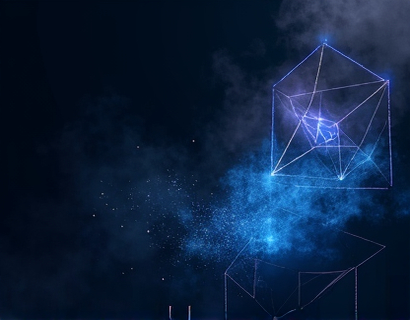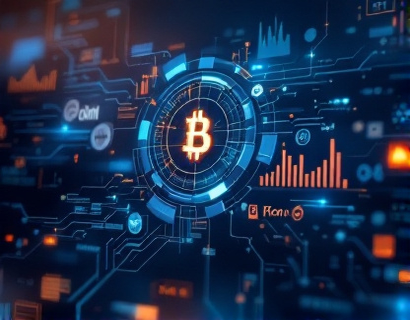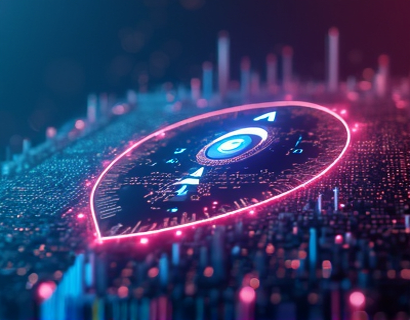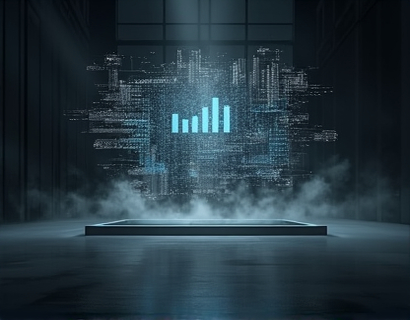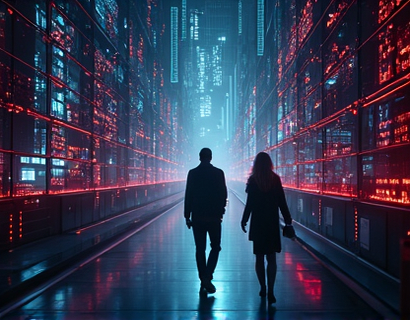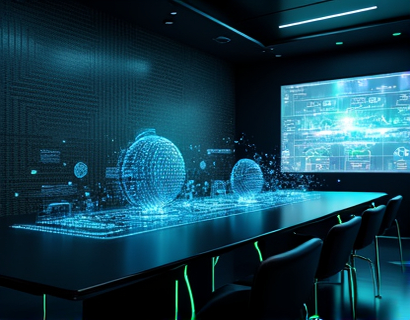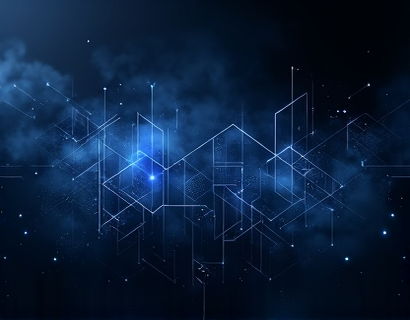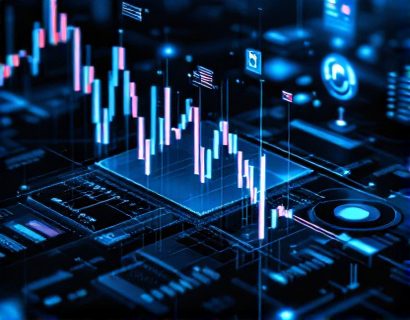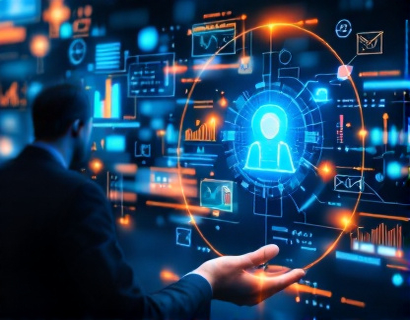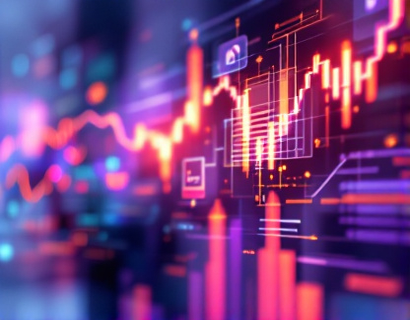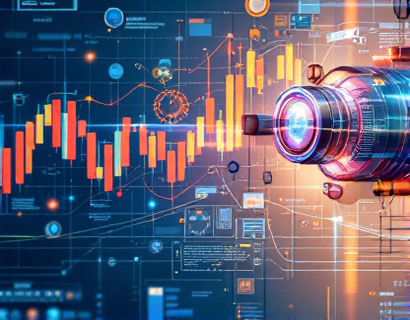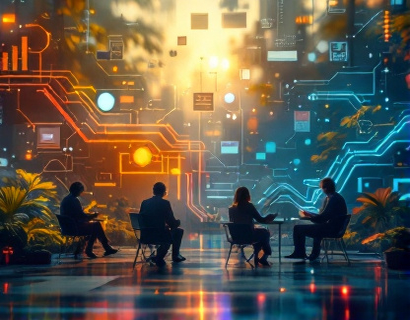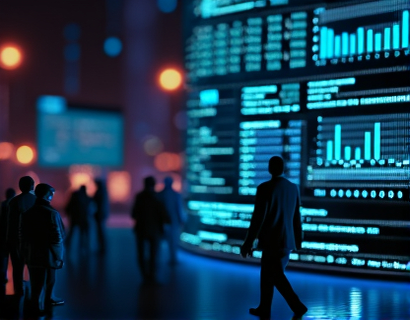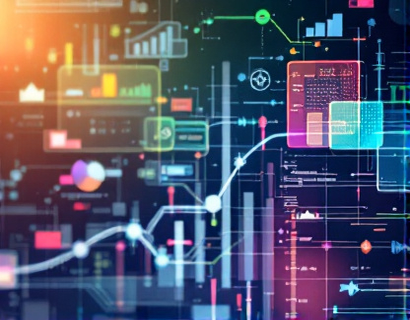Driving Digital Innovation: The Synergy of Crypto and AI
The intersection of cryptocurrency and artificial intelligence (AI) is ushering in a new era of digital innovation. This convergence is not just a technological curiosity but a powerful force reshaping how we interact with digital services and applications. For tech enthusiasts and early adopters, understanding this synergy is crucial as it promises enhanced user experiences, greater security, and unprecedented efficiency. This article delves into the ways blockchain and advanced AI algorithms are merging to create seamless, robust, and user-centric solutions.
The Foundations: Blockchain and AI
To appreciate the transformative power of combining cryptocurrency and AI, it's essential to first understand the fundamentals of each technology.
Blockchain technology, at its core, is a decentralized ledger that records transactions across multiple computers in such a way that the registered transactions cannot be altered retroactively. This inherent transparency and immutability make blockchain an ideal foundation for secure and trustless systems.
Artificial intelligence, on the other hand, encompasses a range of technologies designed to simulate human intelligence processes such as learning, reasoning, and self-correction. AI algorithms can process vast amounts of data, identify patterns, and make decisions with minimal human intervention.
The combination of these two technologies creates a powerful platform capable of addressing complex challenges and opening new possibilities in various industries.
Enhanced Security through Blockchain and AI
One of the most significant benefits of integrating blockchain and AI is the enhancement of security measures. Traditional systems often rely on centralized authorities to manage and secure data, making them vulnerable to breaches and fraud. Blockchain's decentralized nature, combined with AI's advanced analytics, can significantly bolster security.
AI can monitor blockchain networks in real-time, detecting anomalies and potential threats with high accuracy. Machine learning algorithms can adapt to new patterns of malicious activity, continuously improving the system's defenses. This dynamic security approach ensures that the network remains robust against evolving threats.
Moreover, AI can enhance the security of cryptocurrency transactions by verifying identities and transactions more efficiently. Biometric data, for instance, can be securely stored and verified using blockchain, while AI algorithms can analyze transaction patterns to prevent fraudulent activities.
Optimized User Experiences
The integration of AI in blockchain-based systems also leads to more personalized and efficient user experiences. AI algorithms can analyze user behavior and preferences, tailoring services to individual needs. This level of personalization is particularly valuable in the realm of financial services, where users expect seamless and customized experiences.
For example, AI-driven chatbots powered by blockchain can provide 24/7 customer support, handling queries and transactions with high accuracy and speed. These chatbots can operate independently, reducing the need for human intervention and ensuring consistent service quality.
Additionally, AI can optimize the user interface and experience by predicting user actions and streamlining processes. By analyzing vast amounts of data, AI can identify bottlenecks and suggest improvements, making digital interactions more intuitive and user-friendly.
Efficient Smart Contracts
Smart contracts, self-executing contracts with the terms directly written into code, are a cornerstone of blockchain technology. However, their effectiveness can be limited by the need for manual oversight and the potential for errors. AI can significantly enhance smart contracts by automating complex logic and ensuring precision.
Machine learning algorithms can analyze historical data and predict outcomes, helping to refine smart contract conditions. This reduces the risk of errors and ensures that contracts execute as intended. AI can also monitor the performance of smart contracts in real-time, identifying and addressing issues promptly.
Furthermore, AI can facilitate the creation of more sophisticated smart contracts that adapt to changing conditions. For instance, in supply chain management, AI can update smart contracts based on real-time data, ensuring that transactions are executed efficiently and accurately.
Decentralized Finance (DeFi) and AI
The finance sector is one of the most impacted areas where blockchain and AI converge. Decentralized Finance (DeFi) platforms leverage blockchain to provide financial services without intermediaries, offering greater transparency and accessibility. AI enhances these platforms by providing advanced analytics and predictive modeling.
AI can analyze market trends and user behavior to offer personalized investment recommendations, helping users make informed decisions. Risk assessment and management are also improved, as AI algorithms can process vast amounts of data to identify potential risks and suggest mitigation strategies.
Moreover, AI-driven bots can automate trading processes, executing trades based on predefined criteria and AI-generated insights. This not only increases efficiency but also reduces the emotional bias often associated with human trading decisions.
Supply Chain Transparency and Efficiency
Supply chain management is another domain where the combination of blockchain and AI can drive significant improvements. Blockchain provides a transparent and immutable record of transactions, while AI can optimize various aspects of the supply chain.
AI can predict demand patterns, optimize inventory levels, and streamline logistics. By analyzing data from multiple sources, AI can identify bottlenecks and suggest improvements, reducing costs and enhancing efficiency. Blockchain ensures that all transactions are recorded accurately and transparently, building trust among all parties involved.
For instance, in the food industry, blockchain and AI can track the journey of products from farm to table, ensuring food safety and quality. AI can monitor conditions such as temperature and humidity, alerting authorities if any issues arise. This level of transparency and control helps prevent contamination and ensures consumer safety.
Healthcare Innovations
The healthcare sector stands to benefit immensely from the synergy of blockchain and AI. Patient data management, drug traceability, and clinical trials are just a few areas where these technologies can make a significant impact.
Blockchain can securely store and manage patient data, ensuring privacy and compliance with regulations. AI can analyze this data to provide personalized treatment plans, predict disease outbreaks, and optimize resource allocation. For example, AI algorithms can analyze patient records to identify high-risk individuals and recommend preventive measures.
In drug traceability, blockchain ensures that each step of the supply chain is recorded and verifiable, reducing the risk of counterfeit drugs. AI can monitor the supply chain in real-time, detecting any anomalies and ensuring the integrity of the drug supply.
Clinical trials can also benefit from this combination, as AI can streamline the recruitment process, analyze data more efficiently, and identify potential side effects early. Blockchain ensures that all data is securely and transparently recorded, enhancing the credibility of trial results.
Challenges and Considerations
While the potential of combining blockchain and AI is vast, there are several challenges and considerations to keep in mind. Scalability remains a significant issue, as both technologies require substantial computational resources. Ensuring that blockchain networks can handle the increased load from AI processes is crucial for widespread adoption.
Privacy concerns also need to be addressed. While blockchain provides transparency, it can also expose sensitive data. Implementing privacy-preserving techniques, such as zero-knowledge proofs, is essential to protect user information.
Regulatory frameworks are another area of concern. As these technologies evolve, regulations must adapt to ensure they are used responsibly and ethically. Collaboration between technologists, policymakers, and industry leaders is necessary to create a balanced and supportive regulatory environment.
Future Prospects
The future of blockchain and AI is bright, with numerous possibilities on the horizon. As technology continues to advance, we can expect even more innovative applications and integrations. The development of more efficient consensus mechanisms, advancements in quantum computing, and the emergence of new AI algorithms will further enhance the capabilities of these technologies.
In the realm of user experiences, we can anticipate more intuitive and personalized interactions, driven by AI's ability to understand and predict user needs. Blockchain will continue to provide the secure and transparent foundation necessary for these advancements.
Ultimately, the combination of blockchain and AI represents a powerful force for digital innovation, capable of transforming industries and enhancing the lives of users worldwide. By embracing these technologies, we can build a more secure, efficient, and user-centric digital future.




